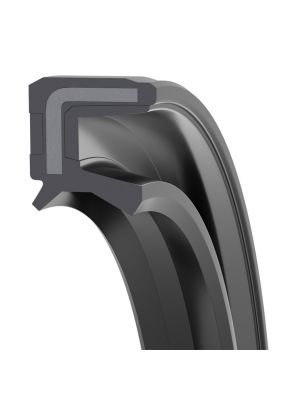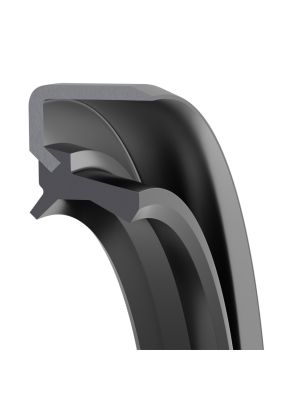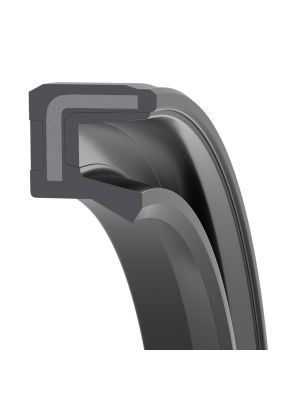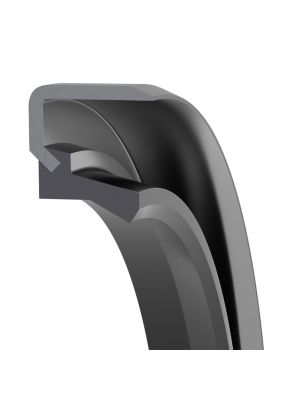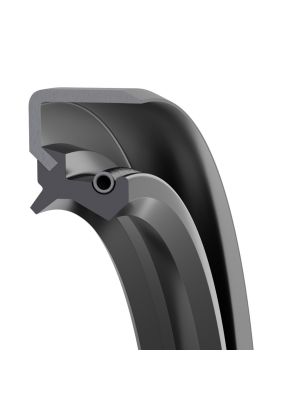Bonded Oil Seals
Oil Seals
Oil Seals, also known as radial oil seals, radial shaft seals or rotary shaft lip seals, are round sealing devices used to seal between two machine parts that rotate relative to each other. They are used to seal lubrication in and/or contamination out, or to separate dissimilar media.
Oil Seals consist of an elastomeric sealing lip (material options outlined below) and a rigid metal case. Additional options include secondary exclusionary sealing lips and a garter spring fitted into the rubber lip to increase sealing force. The metal case may or may not have rubber molded around it to improve static sealing.

Oil Seal applications can be very demanding depending on the seals. GFS Engineers are available to consult on any Oil Seal application. Click here to contact a GFS Engineer.
Materials
Nitrile (NBR)
Nitrile compounds perform well in gasoline, crude oil, power-steering fluid, hexane, toluene, water, water-based hydraulic fluids, and dilute bases, such as sodium hydroxide. Material data sheet can be viewed here.
Fluorocarbon (FKM)
Fluorocarbon (FKM) has a broad spectrum of excellent resistance to a variety of chemicals and resistances. Due to FKM's wide range compatibility, temperature range, low compression set, and excellent aging characteristics FKM is a very high performing material. Material data sheet can be viewed here.
Polyacrylate (ACM)
ACM (acrylic rubber) has good resistance to mineral oil, oxygen and ozone. Water compatibility and cold flexibility of ACM are significantly worse than with nitrile. Polyacrylate is frequently used in automotive steering and automatic transmission systems. Material data sheet can be viewed here.



